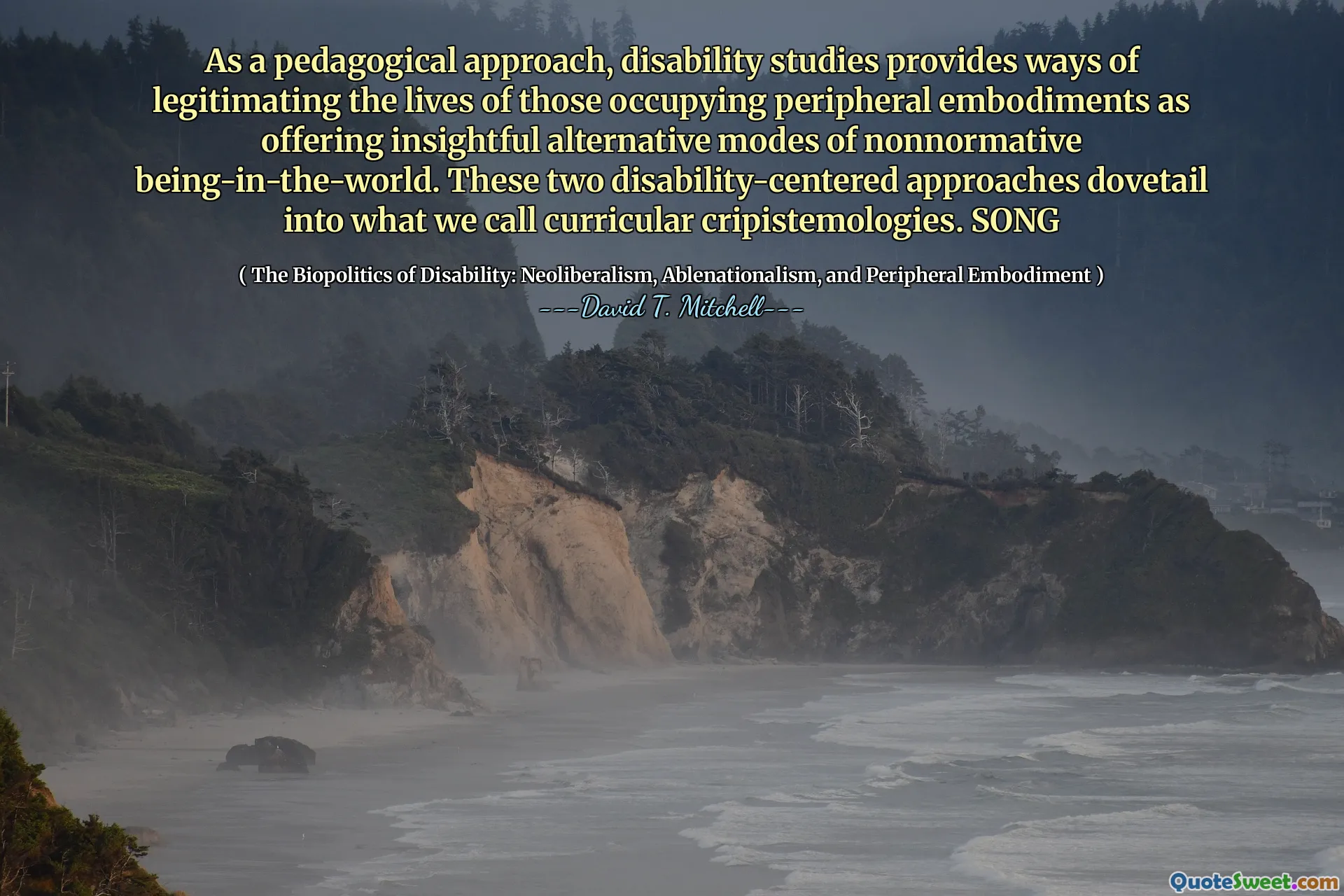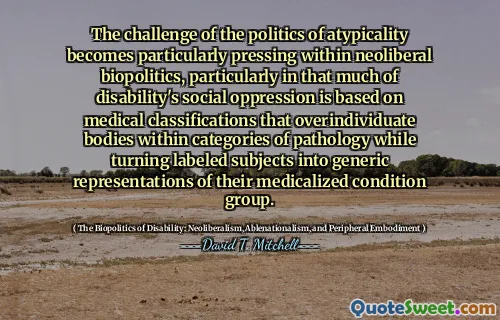
As a pedagogical approach, disability studies provides ways of legitimating the lives of those occupying peripheral embodiments as offering insightful alternative modes of nonnormative being-in-the-world. These two disability-centered approaches dovetail into what we call curricular cripistemologies. SONG
Disability studies offer an educational framework that validates the experiences of individuals with non-normative bodies, positioning them as sources of alternative perspectives on existence. This approach challenges conventional views on ability and highlights the value of diverse lived experiences. By recognizing these unique embodiments, disability studies contribute to a deeper understanding of human differences.
Two central approaches within this field converge to create what is termed curricular cripistemologies. This concept emerges from David T. Mitchell's book, "The Biopolitics of Disability," which explores the intersection of disability, neoliberalism, and societal norms. Through this lens, the study of disability becomes a means to examine broader social structures and their impact on marginalized communities.







